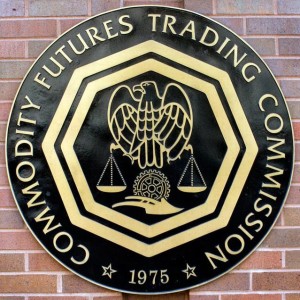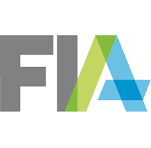 The stare down between American and European regulators over cross-border swaps regulations continues.
The stare down between American and European regulators over cross-border swaps regulations continues.
In the month of October, Christopher Giancarlo, Chair of the Commodities Futures Trading Commission, again made it clear that part of the new global swaps regulation framework includes, deference.
On October 1, 2018, the CFTC released a white paper entitled: CROSS-BORDER SWAPS REGULATION VERSION 2.0
In the white paper, Giancarlo reaffirmed his commitment to deference: “The CFTC should act with deference to non-U.S. regulators in jurisdictions that have adopted comparable G20 swaps reforms, seeking stricter comparability for substituted compliance.”
That was one of six principles which Giancarlo committed to in the paper.
Giancarlo followed this up by a speech at the Futures Industry Association (FIA) Expo in Chicago on October 17, when he said in part: “So, what do we mean by ‘deference?’ It is a word that is frequently thrown about in regulatory circles. Yet, it is a mistake to dismiss it as a slogan. It is a regulatory approach that can be applied to concrete regulatory challenges – regulation of swaps trading venues, regulation of central clearinghouses (CCPs), and regulation of swap dealers. It is the basis for any realistic chance to preserve functioning global markets.
“During my travels in Europe and Asia, I called for policymakers and regulators to join me in adopting a deferential approach to the cross-border application of swaps reform regulation. I said we have a rare and precious opportunity to trust one another; an opportunity to put into place contemporaneously laws, rules, and regulations that enshrine regulatory and supervisory deference in how we treat third-country firms and transactions. This approach can help to end the imposition of unnecessarily duplicative, overlapping, and costly burdensome regulatory requirements and thereby alleviate the market fragmentation that plagues the swaps markets today.
 “The majority of regulators with whom I spoke welcomed the return to deference. It was discussed favorably at last week’s G-20 meeting in Bali. Many are expressing enthusiasm for regulatory coordination and want to seize the opportunity to put in place relevant laws, standards, and policies that reflect a path of deference.”
“The majority of regulators with whom I spoke welcomed the return to deference. It was discussed favorably at last week’s G-20 meeting in Bali. Many are expressing enthusiasm for regulatory coordination and want to seize the opportunity to put in place relevant laws, standards, and policies that reflect a path of deference.”
He followed this up with an appearance with Andrew Busch, CFTC’s Chief of Market Intelligence, on Busch’s podcast on October 26.
Once again, Giancarlo reiterated his commitment to deference.
This has been something that Giancarlo has been speaking a lot about since the summer 2017.
That’s because in light of Brexit the European Parliament is debating whether or not to impose new rules for their regulators to also approve certain swap transactions which would come out of London.
While nothing has yet been decided, Giancarlo is fearful that European regulators will want to also approve certain swaps transactions which are done in the US.
Since this rumor has started, Giancarlo has made it clear that the US will not stand for other regulators also approving swaps transactions, done in the US.
Indeed, one of the other principles is “The CFTC shall be a rule maker, not a rule taker, in overseeing U.S. markets.”
Giancarlo summarized the history which got us here on the podcast.
A swap is “a derivative contract through which two parties exchange financial instruments. These instruments can be almost anything, but most swaps involve cash flows based on a notional principal amount that both parties agree to.” According to the website, Investopedia.
Credit default swaps, specifically, were integral to creating the crisis.
Their purpose was to unload credit risk; if a bank found it was overweighted in car loans, they could create a swap which would be traded for another class of credit.
Instead, banks began trading swaps in a speculative manner, with little regard for hedging.
Following the 2008 financial crisis, a meeting was held at the G20 Summit in Pittsburgh in 2010, which agreed on a global swap regulation framework.
Global regulators agreed to principles which drove their regulation, but in exchange, there was deference to each regulator.
After Brexit, the European Parliament began talking about extending their regulations to swaps which would trade in London or move all swaps trading to the European Union.
From there the EU Parliament suggested they might extend their regulatory hand to the US; here’s part of a September 2018 story in Bloomberg: “The U.S.’s top derivatives regulator is ratcheting up pressure on the European Union to scrap its plan to tighten oversight of foreign clearinghouses, telling senior officials from the bloc that the proposal could damage financial markets and stunt economic growth.
“Speaking at a closed-door meeting of policy makers and financial industry executives in Vienna Thursday, Commodity Futures Trading Commission Chairman J. Christopher Giancarlo said the EU proposal would lead to ‘overlapping and confounding cross-border regulation, with its high regulatory cost and constraints on economic growth.’”
Thus far, neither regulator- in Europe and in the US- have blinked and they may be on a collision course on deference.








